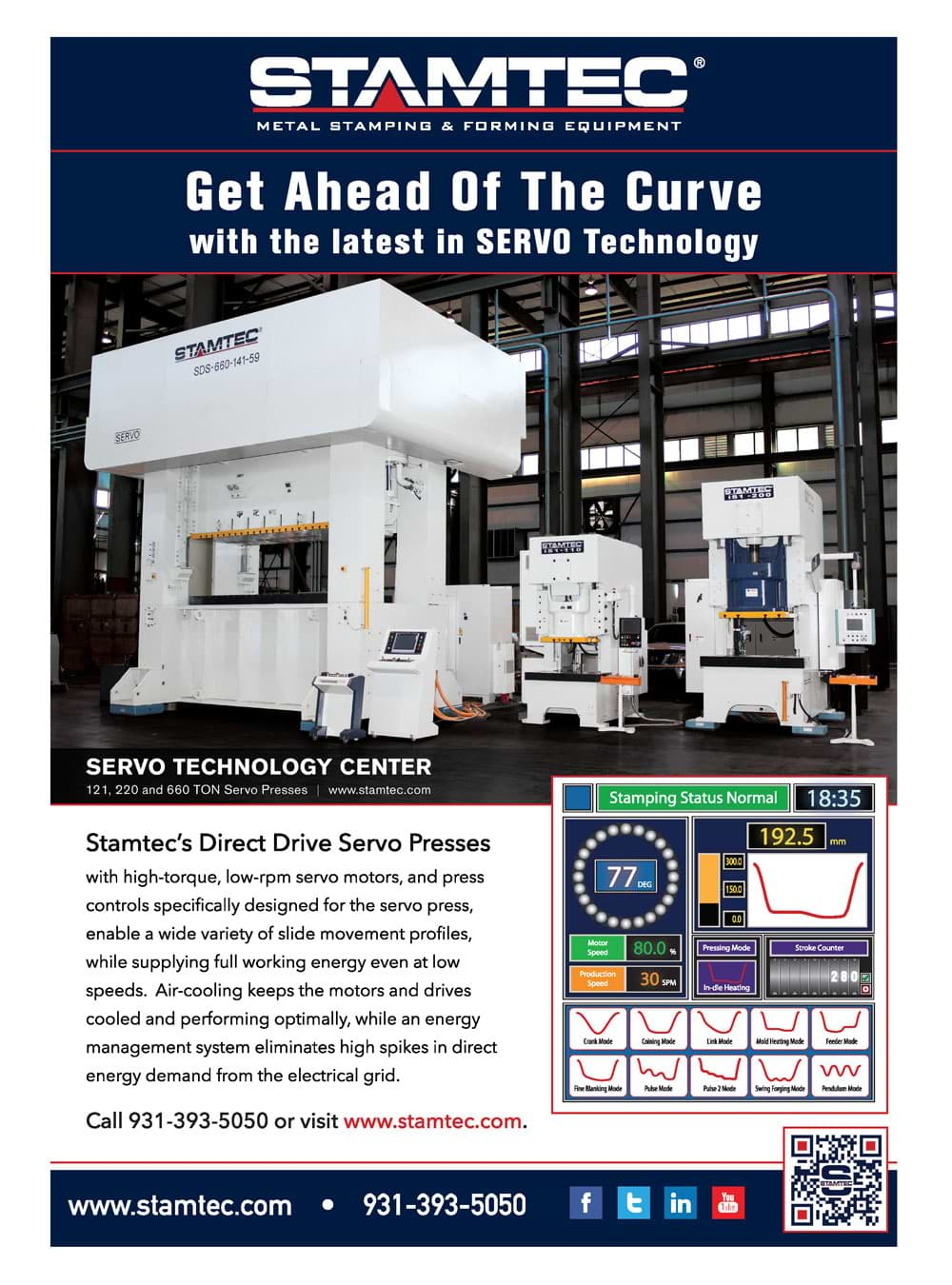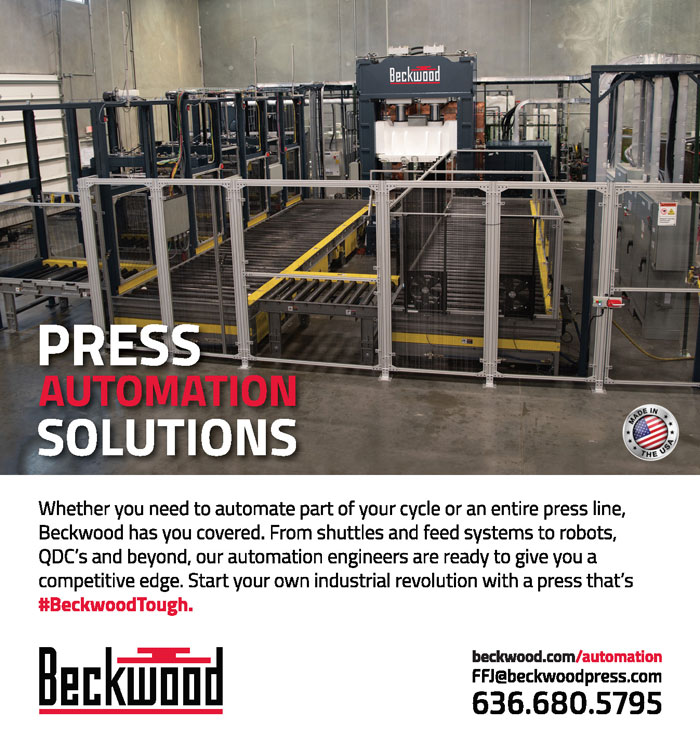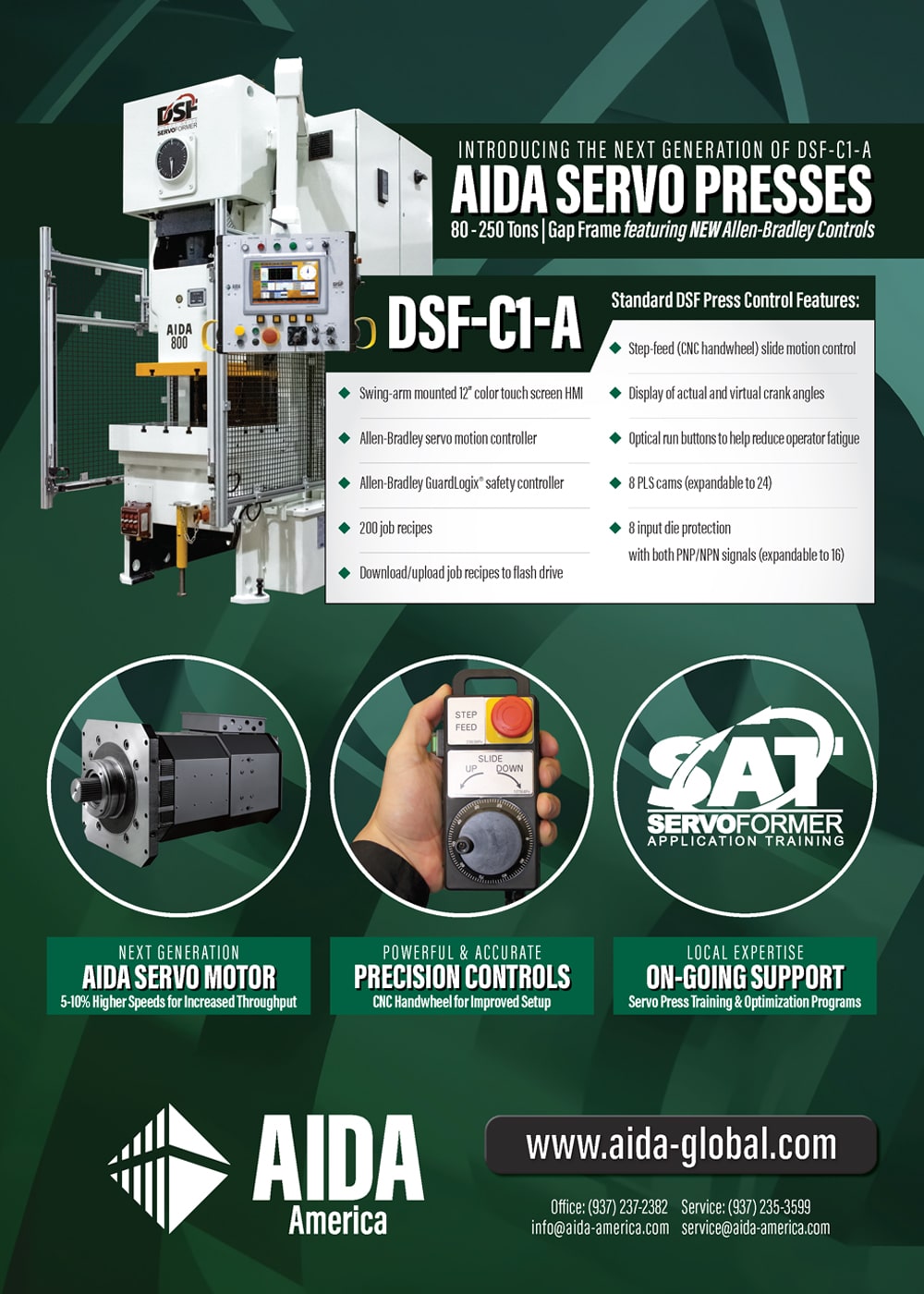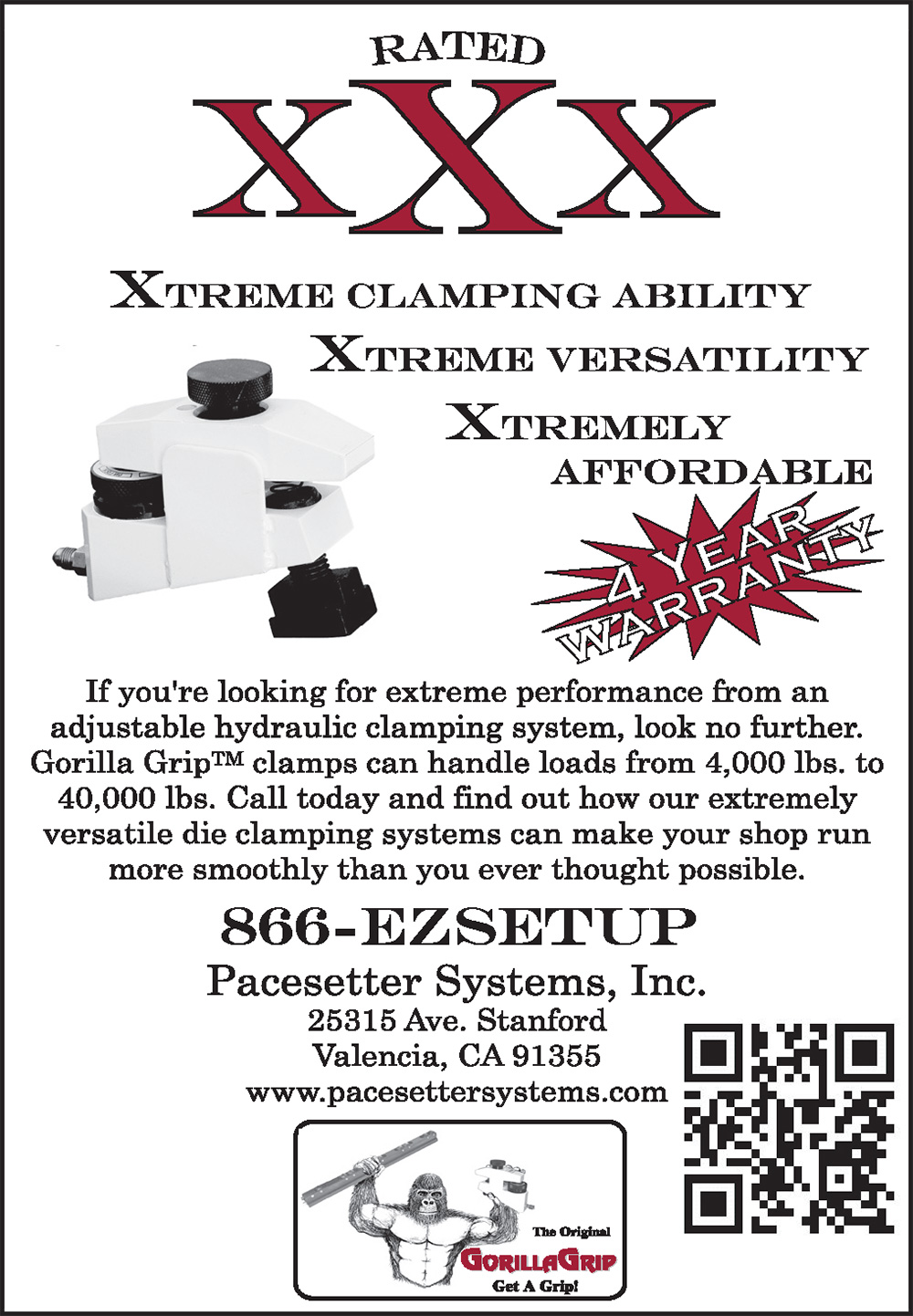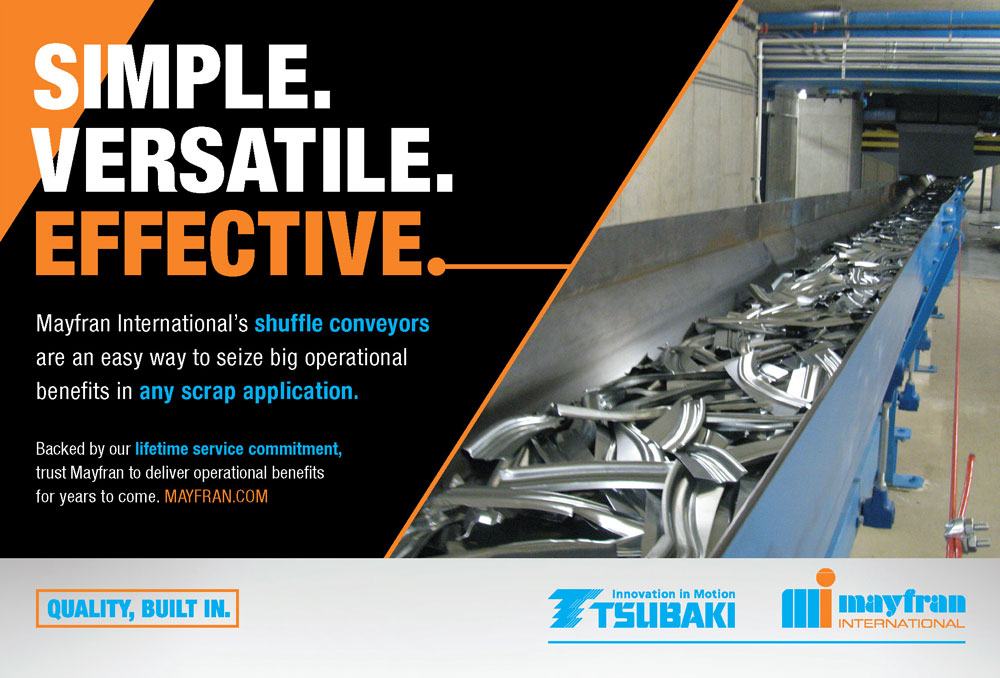he quest to make vehicle components lighter while improving safety continues to push the development of advanced high-strength steels (AHSS). New grades of third-generation AHSS are undergoing qualification and gaining production-ready status. These materials surpass dual-phase steels in their ability to cold stamp complex shapes, but also promise efficiency in the era of electric and autonomous vehicles.
On the equipment side of the equation, these trends have helped servo press technology evolve from a niche product to the gold standard—particularly among automotive stampers.
“The industry is looking for increasingly lighter weight materials that won’t compromise safety standards,” says David Diaz-Infante, servo press applications engineer for Nidec Minster Corp. Diaz-Infante holds a doctorate in industrial engineering with a focus on sheet metal forming from The Ohio State University.
Steel’s tensile strength is typically measured in megapascals (MPa). The higher the MPa rating, the higher the tensile strength of a particular grade. According to Diaz-Infante, newer grades of AHSS are reaching beyond 1500 MPa. For stampers, the rapid rise of these formable steels also ushered in a new set of challenges.
Nidec Minster introduced its first servo press, the P2H-FX-100, in 2011 to process triple-A battery canisters. It soon followed with the larger FX2 series. In 2015, the Nidec Corp. acquired Spanish press manufacturer Arisa S.A., as part of the Nidec Press & Automation Group. Arisa developed its first servo press in 2008. The machine builder then introduced the FX2 and GS2 servo models. Today the press and automation group builds straight-side servo presses ranging from 63 to 4,500 metric tons.
 We see new grades of high-strength steels continuing to develop for automakers.
We see new grades of high-strength steels continuing to develop for automakers. 
In blanking, cutting or piercing operations, tooling penetrates sheet metal. The material being stamped may fracture, creating severe, immediate reverse loads. The sudden release of these loads is called snap-through. Over time, snap-through causes vibration problems, damage to bearings, seals and gibways, and premature die wear. Nidec Minster’s servo presses helps limit snap-through by controlling and slowing slide speed near the bottom of the stroke just before the die touches the material.
“Some of these advanced steels have to be softened prior to processing,” Wuebker says. Historically, he notes, servo presses were not effective for this application due to their inability to maintain enough pressure on the part while it cooled. Now, however, the company launched “a robust alternative to hydraulic presses by designing several [servo] models with the capability to maintain [tonnage] during the hot forming process.”
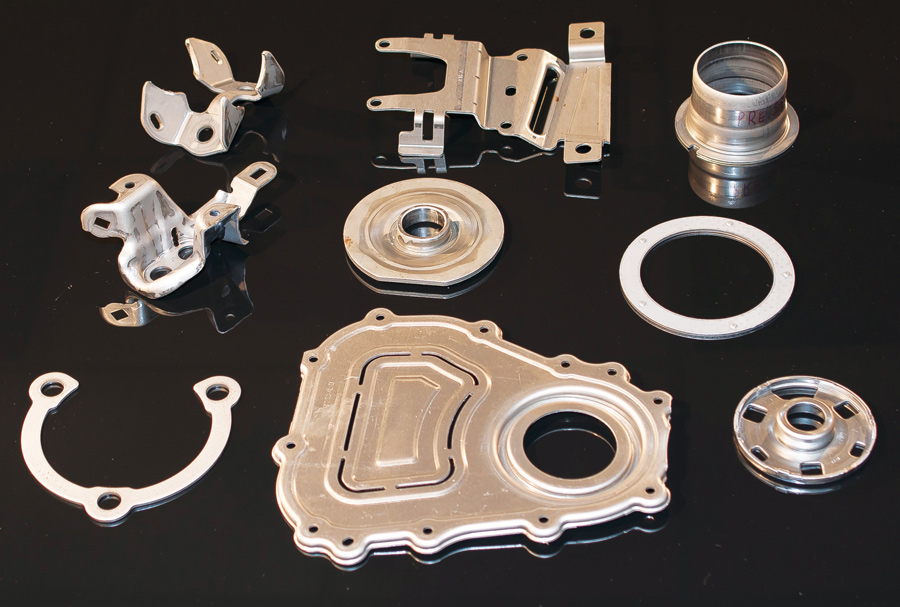
“We needed to improve the holding pressure capacity during heat transfer in order to provide the advantages of servo,” says Diaz-Infante. “We can control heat transfer between the die and the part with contact pressure, making it possible for manufacturers using a servo press to perform a process that has traditionally required a hydraulic press. And we can do it faster.”
“These models can be modified mechanically, along with the control, to execute a hot stamping profile,” says Wuebker.
The GS2 offers another advantage. It was developed around a modular design to harness the advantages of servo-forming at accessible price points and shorter lead times.
“We realized that servo press needs span from traditional use all the way up to high-end unique and demanding applications,” says Wuebker. “Press options and configurations needed to follow suit. The GS2 was a collaborative effort between our engineering and manufacturing teams in Japan, Spain and Ohio to design a press that can be built in North America, Europe and Asia. We’re able to maintain part flow to shorten lead times for customers while saving them the non-value-added costs associated with transportation.”
The ability to control slide motion and speed makes programming combinations infinite. The servo presses can also be programmed offline, eliminating the need to stop the press to make modifications.
Aside from advanced materials, the pandemic—coupled with an election year—has proved to be another challenge for the industry.
“Our customers are focused on the present,” Wuebker explains. “They are working to get products out the door with reduced manpower. [The] situation is trickling all the way down the supply chain. We’ve made an effort to step up our focus on service and support. Customers aren’t necessarily looking to invest in new capital equipment but they know they need to keep what they have running.”
The automotive industry has proved an early adopter of servo presses but manufacturers need support to understand how to optimize the machines. “We’re here to help train these companies,” says Wuebker.
Large automotive OEMs are migrating toward standardization on servo technology. “It is just a matter of time before other companies follow suit, if they haven’t already,” Diaz-Infante says.
